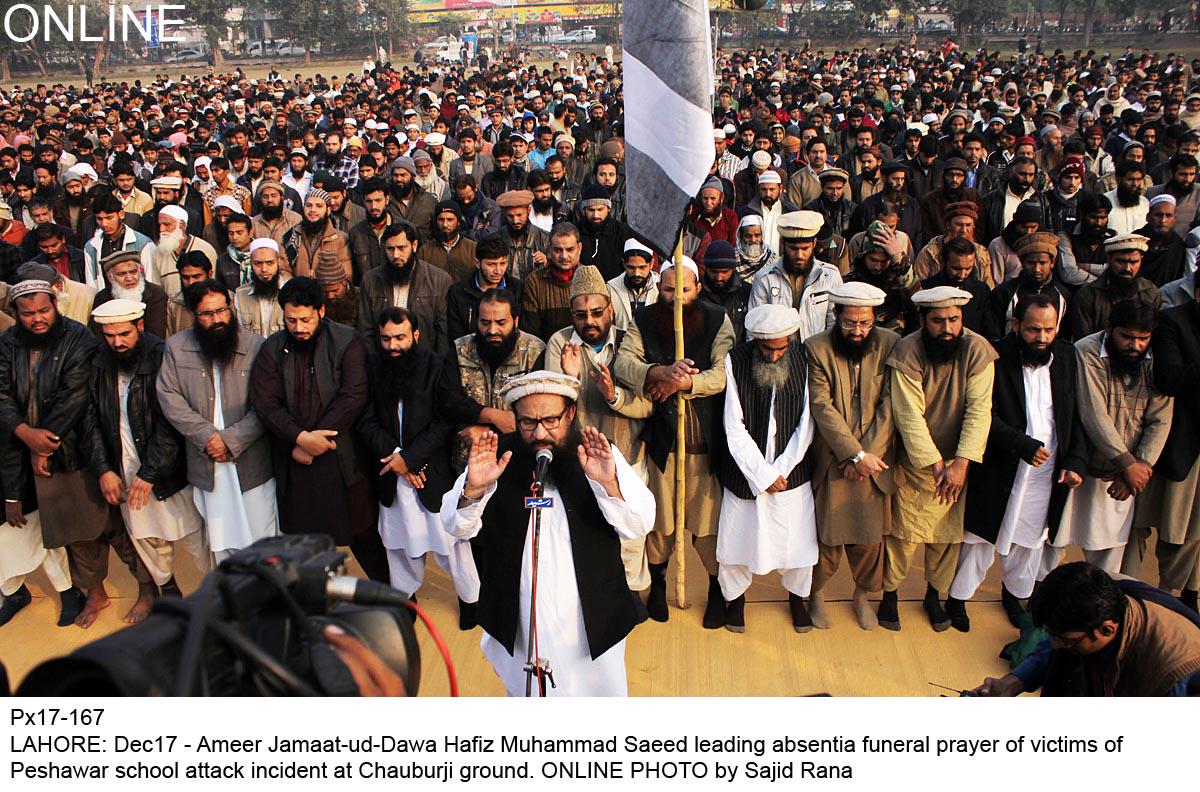Just passing through, and had a thought:
If you think about it, the statement
A Strong and Stable Pakistan is in Everyone's Interest
Is an oxymoron. A complete and total contradiction in descriptors.
Consider for a moment what a "Stable" Pakistan would have looked like.
What is the most "stable" form that one can possibly imagine Pakistan assuming after 67 years of independent existence? To my mind, "Stable Pakistan" resembles the picture that emerges if we imagine Jinnah and Liaqat Ali taking exactly the Jawaharlal Nehru route of development (and the Pak Army complying with all that this would have entailed over the years). Enacting land reforms. Making slow, steady investments in agriculture, education and (to a limited extent) technology. Building steel plants and universities with foreign assistance. Having elections every five years or so. Crawling along at a Nehru rate of growth until perhaps the '90s, when it would have had to adopt a few market reforms in lieu of an IMF bailout.
Until finally, in 2014, Stable Pakistan would have looked very much like India, with lots of poor people, an emerging middle class, a burgeoning economy in many respects... BUT... and this is a critical BUT... not even a tenth the size of India. No matter how many IT-Vity professionals, doctors, millionaire entrepreneurs or scientists they produced... the STABLE Pakistan that MIGHT HAVE emerged, would have only been a microcosmic mini-me recapitulation of the STABLE India that HAS emerged. Stable Pakistanis as a whole would have been a happier and more peaceful people. But even within the region, Stable Pakistan itself would have been doomed to remain, forever, in second place (if not further behind, say, a resurgent Sri Lanka or Nepal).
Needless to say this vision of Stability is completely, utterly obverse to anything that the Nazariya-e-Pakistan considers "Strength". Their founding vision is to dominate the entire subcontinent, subjugate the kufr and plant the flag of Islam. They cannot do this as a Stable nation by any imaginable yardstick of Stability. Their ONLY hope of becoming Strong lies in their capacity to brew and export Instability, both real (as in the Taliban) and notional (as in the idea of Al-Qaeda getting its hands on nuclear weapons).
Thus (and it is no secret to BRF, which has recognized this truth in many other ways)... Pakistan's doctrine is governed by an Orwellian dictum.
Instability IS Strength.
When we think of dealing retribution to Pakistan, or identifying means of coercion against Pakistan, or causing any pain to Pakistan for any reason whatsoever, this dictum has to be on the top of our minds.
When most nations want to inflict pain on another nation the first menu of options they look at are things that will DESTABILIZE the enemy nation. 1-Hurt their economy. 2- Harm their social and political equilibrium. 3- Diminish their state's capacity to govern and maintain law and order. 4- Injure their standing in the international community as a reliable trading partner or credible diplomatic entity. 5- Degrade their military and security assets.
Options 1 through 4 cause no harm to Pakistan, because Pakistan has already hit bottom in each respective category of damage with no further to fall.
Instability is Strength,
after all. It is not as if they crave a state of stability that we are denying them by exercising options 1 through 4.
In the case of Option 5, degrading military and security assets: to achieve truly significant damage in this sphere, our effort investment would need to be amped up so high as to utterly destroy their military and security assets. That is because any lesser blow dealt against their military and security assets does not yield a favourable cost-benefit ratio. We kill so many uniformed/non-uniformed pigs, they have a pool of lakhs more to draw from. We destroy so many bunkers or camps or artillery pieces or tanks or subs or eff-solahs... many countries are standing by to replenish those assets for Pakistan with generous offers of financial and military assistance. In each case the action on our part is associated with a cost, a mixture of known and unknown risk. Nobody is amortizing our cost. We are lucky if the international community does not, in fact, connive to impose even greater costs on us merely for taking the action.
But Pakistan's costs are being amortized continuously, and Pakistan is able to ensure that its costs will be amortized indefinitely, exactly because
Instability is Strength
for them. They have convinced the world that they have reached a given state of instability, and that the way for the world to keep itself safe is to ensure that such instability does not erode further and become even more unpredictable in terms of potential outcomes.
The US believes this and is powerless to deal with Pakistan in any other way than by amortizing its costs. India, under Manmohan Singh, almost came to believe this as well, and was willing to hand over Sir Creek, Siachen, Hindu Terrorists and god knows what else in the hope of amortizing Pakistan's costs. Russia is now beginning to believe it too. China does not believe it, necessarily; however, China believes that the instability exported by Pakistan causes more difficulty to its rivals, India and the US, than potential harm to China itself, and China is willing to connive with Pakistan in sustaining the instability-is-strength paradigm for this reason.
All of this highlights the fact that there is only one way for India to bring Pakistan to the endgame. That is:
to uncouple Pakistan's capacity to transform the currency of Instability into the currency of Strength.
When a man is poisoned by cyanide, he dies because his capacity to transduce the oxygen he breathes into the energy he needs has been uncoupled.
If the mechanisms by which Pakistan is able to transform Instability into Strength can similarly be uncoupled, what they will be left with is pure instability. THEN the options 1-4 above will instantly become devastatingly effective levers by which India can inflict pain upon, and thereby control, Pakistan; because they will no longer see instability as a source of strength but rather as the inescapable path to their demise as a nation-state.
This is where groups like the TTP can play a role more effectively than any assets India currently fields. The school attack of 16 December will not in itself produce the paradigm shift we would like to see, not by a long shot. However, we must recognize that it strikes a direct and crushing blow against Pakistan's "Instability is Strength" convertibility.
Why? Exactly because of whom the victims were. The children of Army officers.
Nothing, absolutely nothing in any culture shines as bright and unforgiving a light upon institutional weakness as the failure to protect the young, especially the offspring of the privileged. Instability, engineered by the TSPA and ISI for conversion into Strength, produced the TTP in Pakistan. But the very idea that
Instability is Strength
becomes inordinately difficult, even impossible to sustain, when the product of that instability shows up the TSPA/ISI's weakness in such a devastating manner. If the TSPA/ISI cannot protect its own children at a school, where is their Strength? They are left with pure instability, from which the TTP has uncoupled their capacity to generate strength.
From this perspective, such attacks as occurred yesterday are a genuinely welcome development. If, as seems likely, there follows an escalating spiral of TSPA/ISI reprisals against civilians in NWFP/FATA, followed by yet more retributions by the TTP against exactly this type of target, that will be even more welcome. The civil-war situation that evolves will not be the kind of Instability that TSPA/ISI is able to readily convert into Strength. That will provide India with a window of opportunity: with its back to the wall, unable to draw strength from instability, the TSPA/ISI will depend for its survival on India's restraint in exercising options 1-4 above. The international community, equally, will no longer be confronted by the leveraging of instability as strength, because the cost to TSPA/ISI of leveraging instability in this manner will already have risen too high by this point. It is at that moment, ironically, that the international community will cease to amortize Pakistan because the tipping point will have been reached; any further investment will be seen as pouring money down the tubes.
When that time comes, I hope India's strategic leadership shows the vision and focus to follow through with utter and complete ruthlessness. You don't simply kick the Paki when he is down. You kick him in the head, repeatedly, until he stops breathing.




